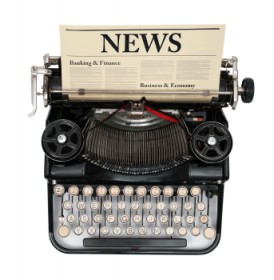What would you rather have – a good night’s sleep or win the lottery? Choose the former to improve your well-being and happiness (and reduce business email overload). Sleep is now recognised as one, if not the main, contributor to our well-being. This is according to the latest survey from National Centre for Social Research. When you are rested, your self-esteem is higher, you are more relaxed and perform more effectively. This is also what sports psychologists have found when preparing sportsmen and women for big events.
What has this to do with reducing business email overload? Ironically, the blue light from those beloved mobile devices has been found to be the most significant cause of a poor night’s sleep. The two key reasons being:
Despite the growing body of research showing how checking emails etc late at night is detrimental to our well-being, the perennial comment in workshops is: ‘my colleagues/boss work in a different time zone and I need to be available’.
Stress and mental health are key areas of concern for most organisations. Business email overload and the constant distraction from digital alerts remain amongst the top ten stressors. This is due to many factors including:
During the recent Overload 2017 webinar speakers such as Lawrence Ampofo and Dan Calisata highlighted ways to create a healthier digital communications culture. For example, using mindfulness and setting boundaries outside which people are not expected to be available. You cannot change culture in isolation but you can start to influence other people’s behaviour and question theirs when they expect you to violate normality. Once you start to make improvements then is the time to collect data to use to develop a business case for changing the wider email culture (perhaps just across your division).
Doing nothing to reduce business email overload is simply not an option these days. Not only will it ultimately damage your personal health it will deter others from working in the organisation and especially ‘Millenials’ and ‘Snowflakes’. Both expect more life-work balanced organisations. They do not see a job for life and if the organisational culture does not suit they will move elsewhere.
Here are seven ways to improve the quality of your sleep – yet stay on top of your inbox and reduce business email overload.
It can be hard to switch off, one way is to start by creating digital-free time during the day. For example, at meal times and whilst shopping. Then build-up so that ultimately you have a digital-free day over the weekends.
Other resources to help you include:
If you (or your team) need more help reducing business email overload whilst improving well-being and productivity, email or phone us now.
What are your top tips for improving the quality of your sleep?
Tags: Business email overload, Digital devices and sleep, Email and sleep deprivation, Mesmo Consultancy
 Five articles of note exploring business email overload and how digital devices have hijacked our memory and quality of sleep.
Five articles of note exploring business email overload and how digital devices have hijacked our memory and quality of sleep.
Headspace. Whilst thinking of de-cluttering the mind, have you tried the Mindfulness App ‘Headspace’? Yes, it means accessing your digital device, but you can do so without being disturbed, just turn off all new digital alerts! We love it as a way to clear the mind either before trying to be creative or travelling and trying to stop your mind racing with the train/plane.
Tags: Business email overload, David Taylor, Email and sleep deprivation, Headspace, Nicolas Carr, NLP, Smart phones sleep
It’s Mental Health Awareness Week. Email overload is a major cause of stress and hence poor well-being. Over the last few weeks there have been several interesting articles on different ways to reduce the stress which arises from business email overload and poor business email etiquette.
1. Forget sending an email, ask for a favour in person.
It’s often hard enough to pluck up the courage to ask someone for support for example cover whilst on leave, sponsorship etc. Recent research showed that people are 35 times more likely to say yes if asked face-to-face or by phone than by email. Perhaps not a surprising result given how emails can either be mis-interpreted or even lost in a full inbox. Stop stressing about when you will receive a response, go and walk and talk.
2.Stop playing email ping-pong.
Processing an email costs the average business about £.75 per email. Ten pointless rounds of email pong-pong is £7.50 down the sink. Played by ten pairs of employees at least five times a week – your business has now wasted the equivalent of £750 a week. Can you really afford to lose this much profit not to mention time and productivity?
3.Why working from home can still leave us stressed.
The CIPD found that although job satisfaction is up and work is more flexible than ever, one in three people are looking for a less stressful job. One significant source of stress being the feeling that you are always available and find it hard to switch off. Graduates and senior staff being most at risk. The question is why and who is making these demands on your time? Often no one – they are self inflicted. Top three solutions, set your own boundaries, find the off-button or have a second mobile device for personal use. If none of these work – peel some potatoes!
4.Sleepless couples swap pillow talk for a nightcap.
Email and sleep deprivation remains a significant problem according to the latest research from the Sleep Council. Emailing late at night continues to disrupt our sleep patterns. as worrying is the fact that those turning to alcohol is up by 10% over the past few years.
5.People whose glass is always half-empty are very draining.
Not specifically about email but there is an underlying message on business email etiquette. Make sure your emails are positive even when the news is bad. Always, try to pick out one up-side.
6.How to reduce the pressures at work.
Although this wide ranging article is aimed at accountants, it contains some very useful tips for us all about how to handle increasing workloads but reduce the associated stress. On the email side the key suggestion is to deal with email in batches instead of being constantly interrupted. Where have you heard that before? If you must see emails from key people then write a rule which alerts you to only these emails.(About 1.5 minutes in on this video).
7.How to get post Blackberry Blackberry. For those still depressed over the demise of the Blackberry, there is hope of a shinny new version. Just take care that you are not feeding your email addiction.
Tags: After hours email, Blackberry, business email etiquette, Business email management, Email and sleep deprivation, email overload, Email ping-pong, email stress, Mental Health Awerness Week